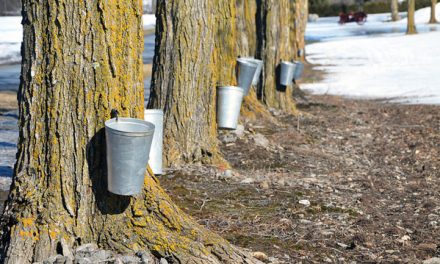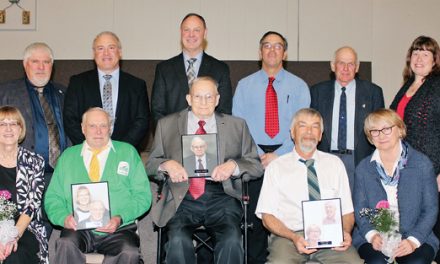by Candice Vetter
AgriNews Staff Writer
FINCH – Finch area beef farmer Vincent Hanniman is fed up with negligent hunters after finding six coyote carcasses dumped in his pasture.
Hanniman has a small cow-calf pasture operation of about 80 acres (32 hectares) which is fenced and posted. He went out to check on his cattle on Sat., Feb. 17, and noticed a pile of brown fur. When he got close he spotted two dead coyotes with fur still on and four which had been skinned.
He reported the find to the OPP, South Nation Conservation, the Township of North Stormont, and the Ontario Ministry of Natural Resources, which told him because the carcasses were on his land he was responsible for cleaning them up. He credited OPP Constable Laebé of the Long Sault detachment for calming him down.
This is not the first time Hanniman has found remains of hunting activities on his property. “I’m fed up,” he said in a telephone interview with AgriNews. “In 2010, 2013, 2015, I’ve found carcasses.” He added that these actions violate the Nutrient Management Act, hunting laws and his rights. “Why my property?” he asked. He is close to a road allowance and had they been dumped there, at least his livestock would not have been disturbed. “If I threw them onto Township property (road) I could be charged by the Township.”
He is angry for many reasons. Carcasses attract other predators, particularly opportunistic omnivores like coyotes, wolves, raptors, crows and ravens, which can be a danger to young calves. In addition, strangers entering his pasture can spook his cattle, resulting in all kinds of trouble, especially cattle running through fences and into the ditch or onto the road. It also bothers him that the three police reports he’s had to make are using public resources.
What really irritates him is that the hunters who are doing this are breaking the law, but if he has a dead calf he is required to bury it within 48 hours under the Disposal of Dead Farm Animals regulation under the Nutrient Management Act.
“How can hunters get away with that?” he asked. “I’m not against responsible hunting, but this kind of thing gives all hunters a bad name.”
Besides coyote carcasses he has also found garbage bags containing goose parts which were tossed in with his cows. “Bones can puncture tires,” he said. “And I find other kinds of garbage too, which could be toxic for cattle.”
Another concern which is shared by most rural residents is the dogs being used. “They’re usually hunting dogs, and fast like greyhounds, and they’re running all over my property.”
Normally the police and the MNR are responsive, but when the hunters are long gone there is not much that can be done. However, the MNR encourages everyone to report trespassing hunters, poaching, and other hunting infractions. To report illegal activity you can call the MNR at 1-877-TIPS-MNR (1-877-847-7667). When you call TIPS-MNR, your call may be recorded and you may be asked to provide your name and contact information, details about the suspected activity, vehicle information (licence plate number, make, model and colour), date and time of day, location (road, lake, street address, landmarks), and description of any people involved in the incident if possible. To remain anonymous call Crime Stoppers at 1-800-222-TIPS (1-800-222-8477).
Author’s note: This reporter has experienced similar confrontations with hunters, particularly coyote hunters, some of whom shoot from the roadway, which is illegal. Hunting dogs have chased and killed chickens, have scared children outside playing, and chased the cats. Men in camouflage have been stalking through the woods where people were picking berries. Hunters have walked boldly across the property and not responded when yelled at, until the word “trespassing” was shouted. They have claimed to have permission from an imaginary owner (who is Gilles from the Legion?) and have then asked permission (too little, too late). Field dressed geese, turkeys, ducks, coyotes, deer and a dead dog have been dumped in the woods and hayfield. As a result the property is now well posted and no hunting whatsoever is allowed, even if the hunters are known.












